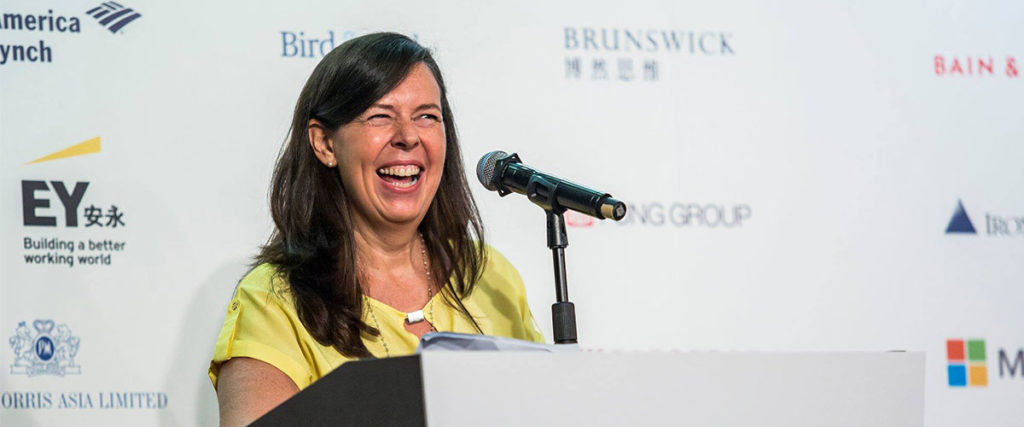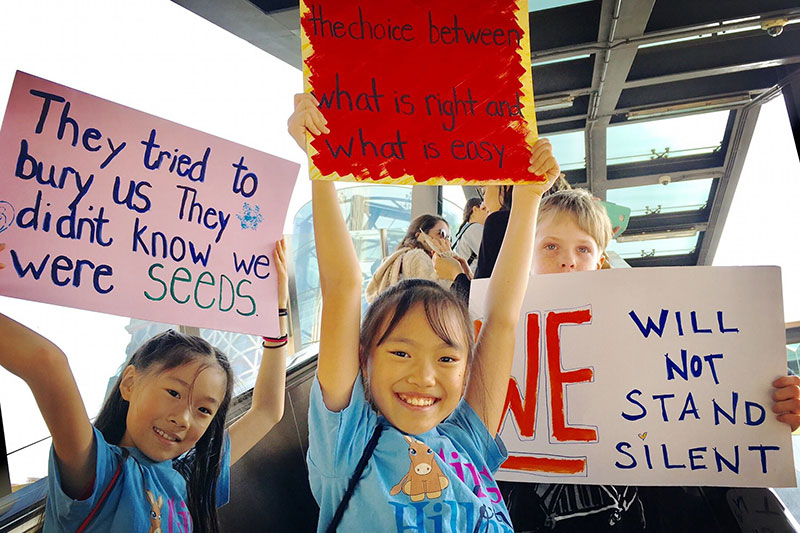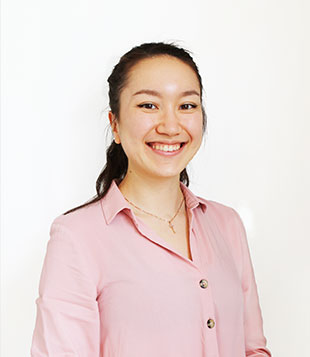Hong Kong-based non-profit The Women’s Foundation is fighting to make Hong Kong a less hostile environment for working women – and mothers.
Advancing gender parity in work and society represents one of the most sizeable economic opportunities for Asia Pacific – and could boost the region’s collective GDP by an astounding USD 4.5 trillion per year by 2025 (a 12% increase in business-as-usual GDP), according to the McKinsey Global Institute. Yet, only 55% of females in Hong Kong participate in the formal economy, 30% of which later drop out due to caring responsibilities – a burden that disproportionately befalls women and girls worldwide. The global financial hub also lags behind Australia (30%), Malaysia (19.2%), and Singapore (15.2%) in boardroom diversity, with women comprising 13.6% of directors in HSI-listed companies and earning 22% less than their male counterparts on average.
Looking to challenge this status quo is The Women’s Foundation (TWF), a multi-faceted nonprofit organisation dedicated to promoting the full and equal participation of women and girls in all aspects of Hong Kong society. Originally established in 2004 as a research institute, TWF uses groundbreaking research, cross-industry programmes, community education, and advocacy to confront gender stereotypes and drive change in the boardroom. Fiona Nott, CEO of TWF and Deputy Chair of the Australian Chamber of Commerce in Hong Kong & Macau, tells Hive Life about the barriers working women face, the ambiguous impact of flexible work, and tips on how to open up the gender conversation for all.
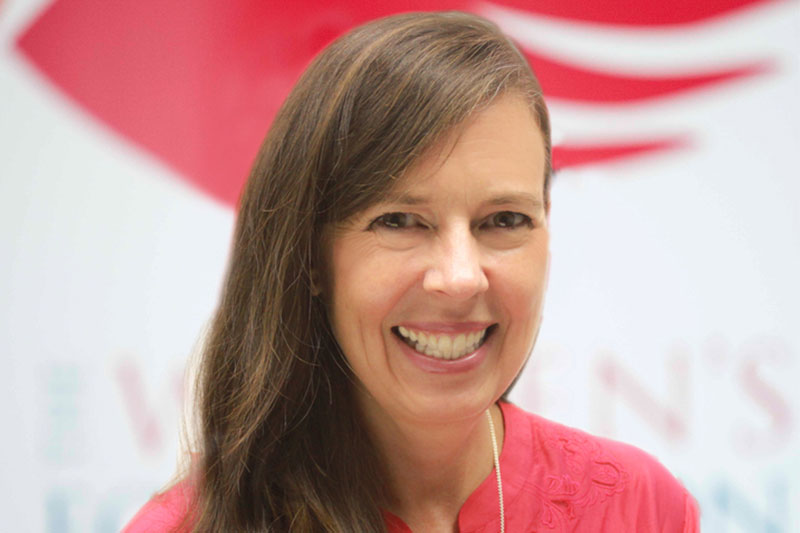
Can you tell us a bit about your background and how it’s shaped the work that you do today?
I was raised in Australia and the UK, and grew up in quite a traditional family. My dad worked and traveled a lot, while my mum primarily stayed at home. I think I’ve always been curious about the world, but a really pivotal moment for me came when my dad took us on a family trip to the Soviet Union during the ‘80s. It was the first time I’d been exposed to a society so completely different from my own – and impoverished too. That experience stayed with me for years and fueled what’s been a career-long commitment to wanting to help the world in some way. I went on to study law at the University of Sydney where I was active in student politics, particularly around social justice issues and gender diversity. I worked for Justice Michael Kirby, a human rights judge in Australia, as well as a number of businesses and NGOs in Hong Kong, before spending some time in India to help improve girls’ education there. Joining The Women’s Foundation on their committee to advance women on boards 8 years ago was a natural fit for me, given my background in those regulatory issues around listed companies. In the interim, I also set up a Women in Business Network for the Australian Chamber, and was a mentor on TWF’s Mentoring Programme, which was hugely rewarding
What changes have you helped introduce since becoming CEO of The Women’s Foundation?
Part of what my team does is we collaborate with and galvanise different sectors (such as universities, corporates, government, and civil society) into action. One thing I’m especially proud of is our Male Allies initiative, which grew out of the understanding that gender equality is not just a ‘women’s issue’, but an imperative that benefits us all. We cannot advance women and girls without engaging men and boys. And so, ‘male allies’ are senior men in business committed to advancing gender equality and inclusion within their organisations, and more broadly across the Hong Kong business community. We create a safe space where they can feel comfortable asking difficult questions, sharing stories, and taking stock of biases. Each Male Ally then agrees to a personal pledge and action plan to drive behavioural change. We’re thrilled to have 44 companies on board and over 200 male champions, some of whom have set up their own male allies networks and even influenced policy in some cases.
You might also like Powerpants by Bham: Australian Social Enterprise Takes a Stand Against Gender Violence

How is TWF fostering workplace gender equality in Hong Kong?
In order to promote gender-responsive workplaces, you need both diversity and inclusion. Diversity involves ensuring that your employees and senior board members are of differing gender, age, background, perspective, and so on. Inclusion, on the other hand, is about creating a culture in which all those elements can work together and everyone is heard. It’s about appreciating the concerns of an employee returning to work after parental leave, for example, so that you can better support them. Besides Male Allies, we also run unconscious bias training and a Mentoring Programme where we match high-potential proteges with successful women leaders across Hong Kong industries, engaging them in 1:1 check ins, panel discussions, and tailored workshops on topics such as executive presentation and communication skills.
Another big part of workplace gender equality is flex work. If you look at the barriers to women’s career progression, and their ability to even participate in the workforce, access to flex work is a key one. Without it, working mothers are more likely to drop out in order to shoulder child and eldercare responsibilities bestowed on them by gender stereotypes.
Talk to me more about that. In light of COVID-19 triggering what’s widely been called ‘the world’s biggest work-from-home experiment’, what unconscious biases undermine the progress of flex working?
What’s interesting about COVID-19 is that companies have been forced to embrace flex working, and in many cases, it works. I think a challenge currently facing Hong Kong is that businesses often think flex work equals working from home, and that’s it. But flex work should not be one-size-fits-all but rather, what works for that particular organisation, and that particular employee. It could be staggered hours, it could be part-time arrangements or job shares. It could just be someone having the agility to go to their child’s sports day, knowing they can balance that time out later. COVID-19 has posed disproportionate challenges for women because they make up the majority of frontline nurses and caregivers, as well as cleaners, cashiers, and other low paid service-oriented jobs – jobs that cannot be performed remotely. Even those with the luxury of being able to work from home find themselves juggling round-the-clock care responsibilities due to the closure of schools and care centres. For these reasons, we tell organisations to think more broadly about what flex work is, and how to make that work for their employees by, firstly, taking time to understand what their needs are.
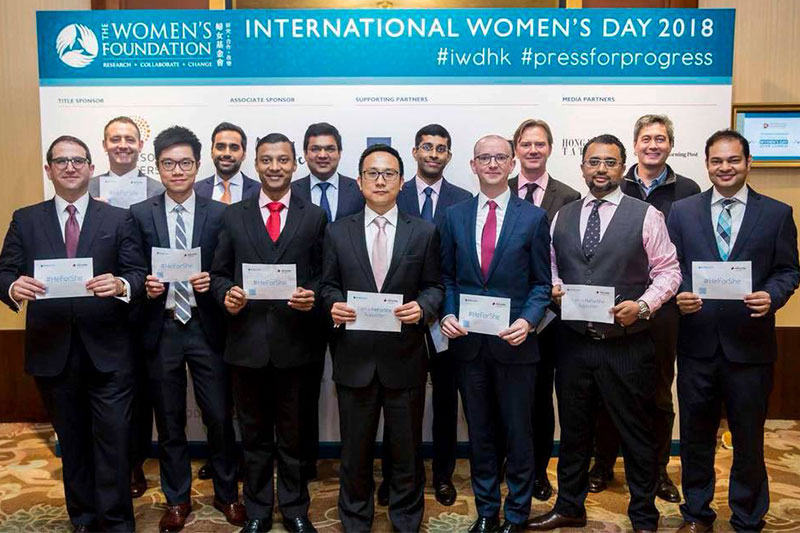
According to a survey by the Equal Opportunities Commission, less than half of employers said they were willing to hire mothers with young children. Why do you think that is?
Yeah, it’s shocking that those kinds of attitudes still exist in Hong Kong. A lot of it stems from gender stereotypes and the assumption that a ‘woman’s role’ is in the home. Another part of the issue is that Hong Kongers work some of the longest hours in the world. We have an entrenched culture of presenteeism, which means we value face time in the office over output. To be ‘successful’ at work, then, means to stay really late in your office, and there’s an assumption that women with families aren’t able to do that. This translates into a serious lack of women in senior leadership positions. That’s why flex work and other family-friendly policies are so important. They support employees, they support productivity, and it’s not just women who benefit from this. Increasingly, we’re hearing men say they would like to spend more time at home with their kids. So, a wholesale change is needed in the way we work such that our most marginalised communities are also accounted for in the ‘new normal’ post-COVID.
What’s it like working in an all-female workplace, as compared to a corporate environment where ‘boys’ club’ mentality is often rife?
This question is tricky because I don’t want to generalise or play into stereotypes about which work environment is ‘better’ than the other. Every workplace has got to commit to a culture, and I’ve seen some amazing companies with fabulous cultures that aren’t necessarily all-female. I think you’ve got to realise that a power situation – like ‘boys’ club’ culture – potentially arises in any environment where there isn’t enough diversity of perspective or work being done to address unconscious bias. We’re an all-women team now, but I don’t think it should be the case. Diverse teams are more innovative and creative in their problem-solving and we do tap into different perspectives through participants in our Male Allies programme and our other stakeholders.
Any advice on how we can open up the dialogue and educate people on institutional gender biases?
We’ve each got a role to play, both as individuals and collectively as companies, the government, and civil society. People often get bogged down by, ‘Oh, I can’t create change quickly enough on my own’, or ‘What if others judge me?’ – but don’t let that distract you. Just commit to one thing and keep doing it, whether that’s changing up the way chores are done at home, encouraging a young girl to take up STEM subjects, going to women’s events, or asking a coworker to be a male ally. Taken together, small steps like these can have an exponential impact on the advancement of gender equality in Hong Kong and beyond.
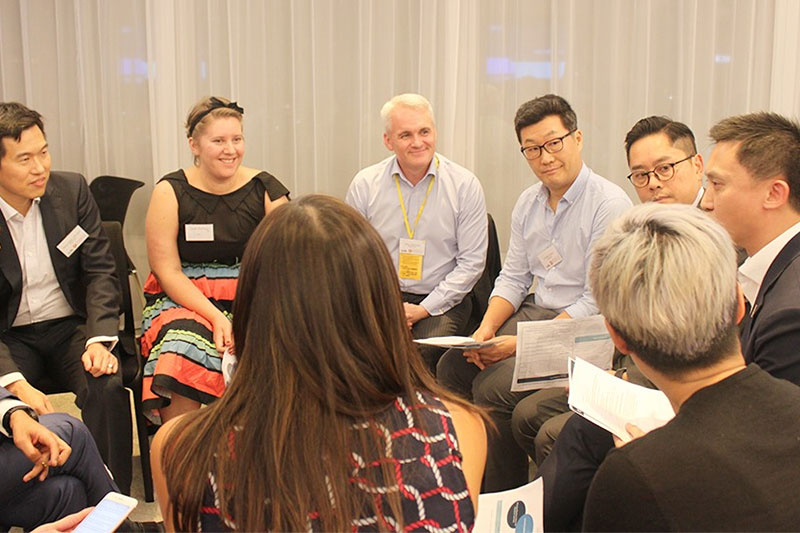
What’s next for TWF?
We’ve recently launched a major campaign #MakePeopleCount in alignment with Sexual Assault Awareness month. It sets out to break the taboo, boost preventive measures, and significantly improve the support available to victims. We partnered with Wunderman Thompson and award-winning director, Yan Yan Mak, to create an emotive video that highlights everyday scenarios where sexual violence commonly takes place. This was coupled with the launch of a website with useful resources, including legal and mental health contacts, as well as a comprehensive set of recommendations for Government, employers and individuals that we will be working with stakeholders to address over the coming months. We’re also due to launch a Boys Education Programme in Autumn 2020, which tackles harmful masculinity constructs in boys, enhances their well-being and helps them to become future allies in the fight against gender inequality.
Each of us can take small steps to advance gender equality. Collectively, this can lead to tremendous shifts. Sign up to The Women’s Foundation’s newsletter here or visit twfhk.org to stay updated on ways you can start being part of the change.
Related Articles
Embrace: Photography Project Celebrates Gender Identity & Authenticity
Ida Sports: How Women’s Football Shoes Are Challenging Gender Inequality
This Australian CEO is Using Data to End the Global Gender Violence Crisis
